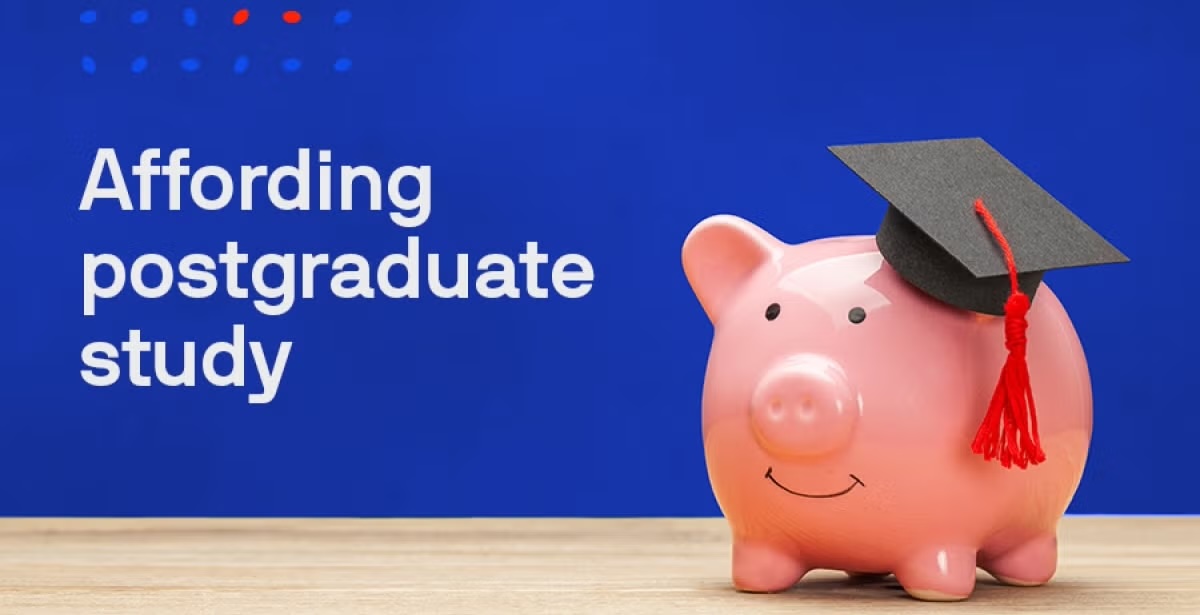How to afford postgraduate study: a step-by-step guide to FEE-HELP


Originally published 11 August 2023. Updated 3 July 2025 to reflect the latest information.
Pursuing postgraduate education can be a significant investment in your future, opening doors to new career opportunities and expanding your knowledge in your chosen field. However, the cost of postgraduate study is always something to consider in your decision.
Fortunately, there are various financial assistance options available, with FEE-HELP being a prominent one in Australia. In this blog, we'll breakdown how to afford postgraduate study and provide a step-by-step guide to understanding and utilising FEE-HELP effectively.
Step 1: Research your options, including Alumni discounts
Before diving into postgraduate studies, thoroughly research the courses that align with your academic and career goals. Get a clear understanding of what your course will cost so there’s no surprises when it comes time to apply. UTS graduates automatically get a 10% discount on UTS postgraduate programs through our Alumni Advantage program.
Step 2: Budget and save
Like any significant financial commitment or large project, starting with a budget and plan will help you to stay on track. Create a budget to understand your current financial situation and identify areas where you can save money. Cut unnecessary expenses, create a savings plan, and set aside funds specifically for your postgraduate education. The more you save in advance, the less you'll have to borrow through loans like FEE-HELP.
Step 3: Evaluate your eligibility for FEE-HELP
FEE-HELP is a government loan program designed to assist eligible Australian citizens, permanent humanitarian visa holders and some New Zealand citizens to cover the cost of tuition fees for postgraduate study.
To be eligible, you must be enrolled in an approved higher education course at an eligible institution. There’s a combined limit on how much students can borrow in government study and training loans. The HELP loan limit includes all previous FEE-HELP, VET FEE-HELP and VET Student Loans borrowed, as well as HECS-HELP loans.
Every student has a unique ‘available HELP balance’. It's essential to check the official government website for the most up-to-date eligibility criteria and requirements.
Step 4: Apply for FEE-HELP
If you are eligible for FEE-HELP, you can apply directly through your chosen educational institution. The application process typically involves providing your tax file number (TFN) and completing a request for a FEE HELP loan form. Remember that FEE-HELP only covers tuition fees and does not include additional costs like textbooks, equipment, or living expenses.
Step 5: Understand the loan repayment
Once you've completed your postgraduate studies, you will start repaying the loan once your repayment income has reached the minimum repayment threshold for compulsory repayments. You can also choose to make voluntary repayments to the ATO to payback your loan faster. Read more about repaying HELP loans.
Step 6: Use FEE-HELP responsibly
While FEE-HELP can be an invaluable resource, it's essential to use it responsibly and avoid accumulating unnecessary debt. Calculate the approximate total cost of your postgraduate study and only borrow what you genuinely need.
Step 7: Seek employment with tuition reimbursement
If you're already employed or plan to work while pursuing postgraduate studies, check with your employer about potential tuition reimbursement programs. Some companies offer financial assistance to employees who wish to upskill or continue their education. This perk can significantly lighten the financial burden and may include partial or full tuition coverage.
Step 8: Explore part-time or online study options
Part-time or online study options can offer more flexibility, allowing you to continue working while pursuing your postgraduate degree. By spreading the costs over a more extended period, you can manage your finances more effectively and reduce immediate financial strain.
Affording postgraduate study may seem challenging, but with careful planning, research and the use of financial assistance options like FEE-HELP, it becomes an achievable goal. Remember to explore all available funding sources, budget wisely and use loans responsibly.
Investing in your education can yield lifelong rewards, enriching your knowledge and career prospects in the long run. So, take that leap and embark on a transformative postgraduate journey towards a brighter future.





